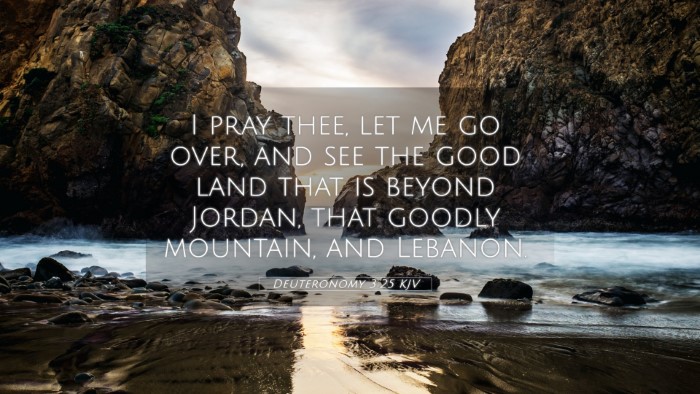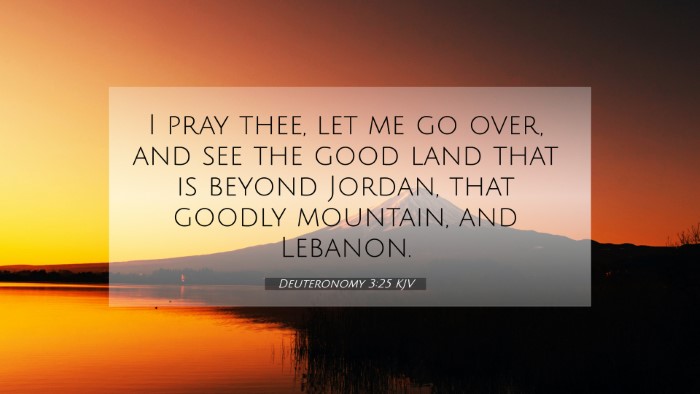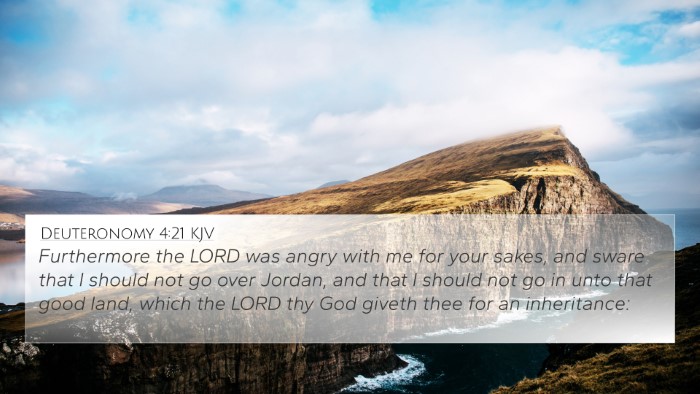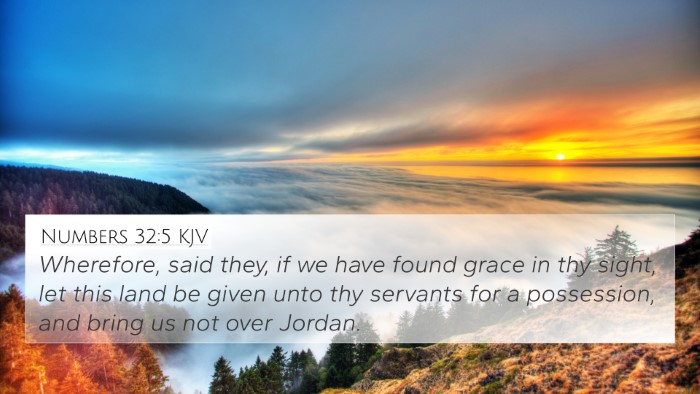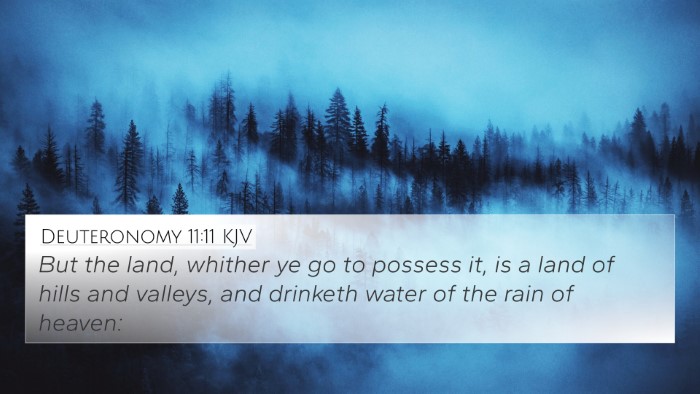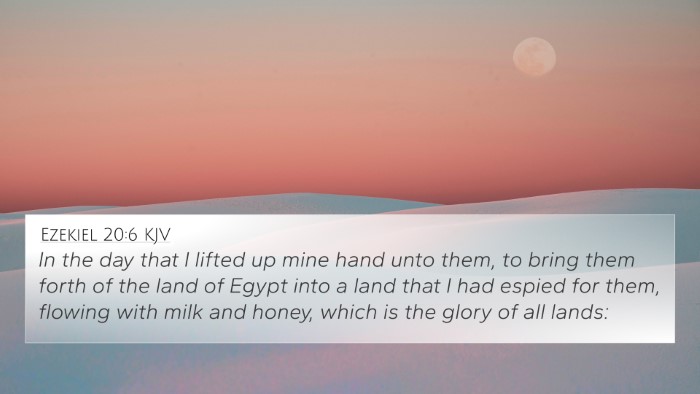Meaning and Interpretation of Deuteronomy 3:25
Deuteronomy 3:25 states:
"I pray thee, let me go over, and see the good land that is beyond Jordan, that goodly mountain, and Lebanon."
This verse reflects Moses' earnest desire to enter the Promised Land, demonstrating his longing for the fulfillment of God's promise to the people of Israel. Below, we summarize insights from notable public domain commentaries, exploring the depth of this verse's meaning.
Summary of Insights
-
Matthew Henry's Commentary:
Matthew Henry highlights Moses' yearning to view the land promised to the Israelites, signifying not just a personal wish but representing the faithfulness of God to His covenant. Moses’ request is portrayed as an expression of hope and expectation, reflecting his role as a leader and intercessor.
-
Albert Barnes' Commentary:
Barnes draws attention to the geographical details of the land, emphasizing its fertility and beauty. He notes that even though Moses was denied entrance into the Promised Land, God allowed him to see it. This act served to encourage both Moses and the Israelites, reaffirming their future hope.
-
Adam Clarke's Commentary:
Clarke provides insight into the spiritual implications of Moses' request. He discusses the symbolism of the "good land" as a representation of spiritual promise and fulfillment. Clarke examines the broader theological meaning, touching on the implications of Moses not entering the land, which prefigures the need for a greater leader who would ultimately bring the people into fullness.
Significant Themes
The themes present in Deuteronomy 3:25 can be further understood through cross-referencing other Bible verses that relate to promise, longing, and leadership. Here are several significant connections:
- Numbers 20:12: God tells Moses that he will not enter the Promised Land due to his disobedience, reflecting the consequences of leadership responsibilities.
- Joshua 1:2: God commissions Joshua to lead the Israelites into the land, showing a transition of leadership, highlighting continuity in God’s plans.
- Hebrews 11:13-16: This passage discusses the faith of the patriarchs who sought a better country, relating to Moses’ desire for the Promised Land as a metaphor for the eternal promises of God.
- Deuteronomy 34:1-4: Further details Moses’ view of the Promised Land and God's assurance about its inheritance by the people, emphasizing divine providence.
- Psalm 78:32-33: Reflects the failure of the Israelites to believe and enter the promised rest, contrasting the hope Moses had for them.
- Matthew 5:5: "Blessed are the meek: for they shall inherit the earth." This foreshadows the fulfillment of God's promise through humility and obedience.
- Romans 15:4: Emphasizes that the Scriptures were written for our instruction, underscoring the relevance of Moses' experiences for believers today.
Cross-Referencing Insights
Understanding Deuteronomy 3:25 requires an examination of the connections between verses that illustrate the themes of promise and fulfillment. Tools for Bible cross-referencing can reveal deeper insights into Scripture. Here are ways to enhance your study:
- Using a Bible Concordance: A concordance can help identify key terms and themes related to promised lands and spiritual leadership.
- Bible Cross-Reference Guide: This guide can facilitate finding verses similar to Deuteronomy 3:25, enriching the understanding of Biblical continuity.
- Cross-Referencing Bible Study Methods: Implementing systematic methods, such as thematic studies, can provide clarity on inter-Biblical dialogue regarding promised inheritance.
Conclusion
In conclusion, Deuteronomy 3:25 serves as a poignant reminder of the human desire for God’s promises and the faithfulness of God in fulfilling them. Moses’ longing is not just a personal request; it opens a door to discussions about leadership, faith, and God’s overarching plan for His people. By engaging in comparative Bible verse analysis and exploring the thematic connections, individuals can gain a richer understanding of Scripture and its teachings.
Explore more: Consider the implications of Moses' interactions with God and the subsequent narrative of Israel's journey to grasp a complete picture of faith and perseverance in the face of disappointment.

